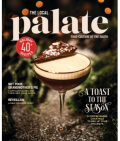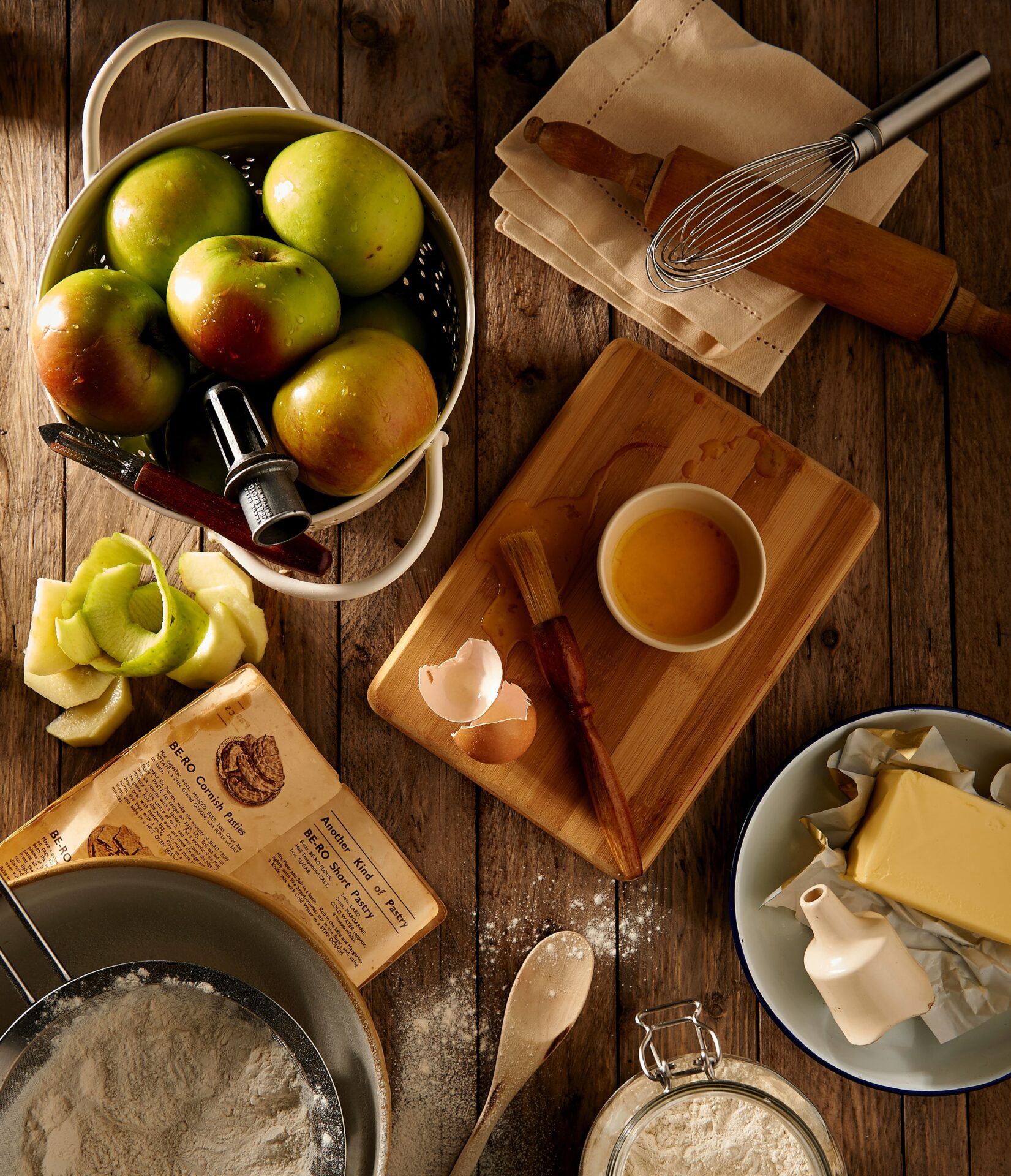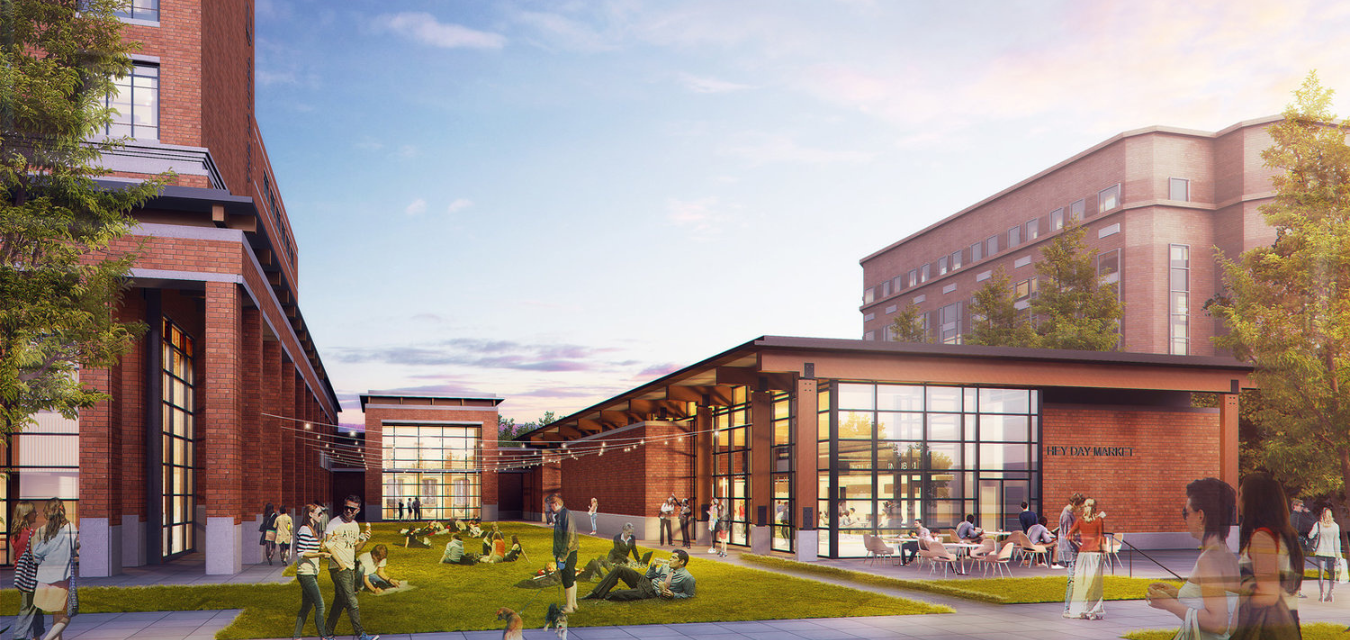A new culinary and hospitality education hub at Auburn University promises to give students a soup-to-nuts education.
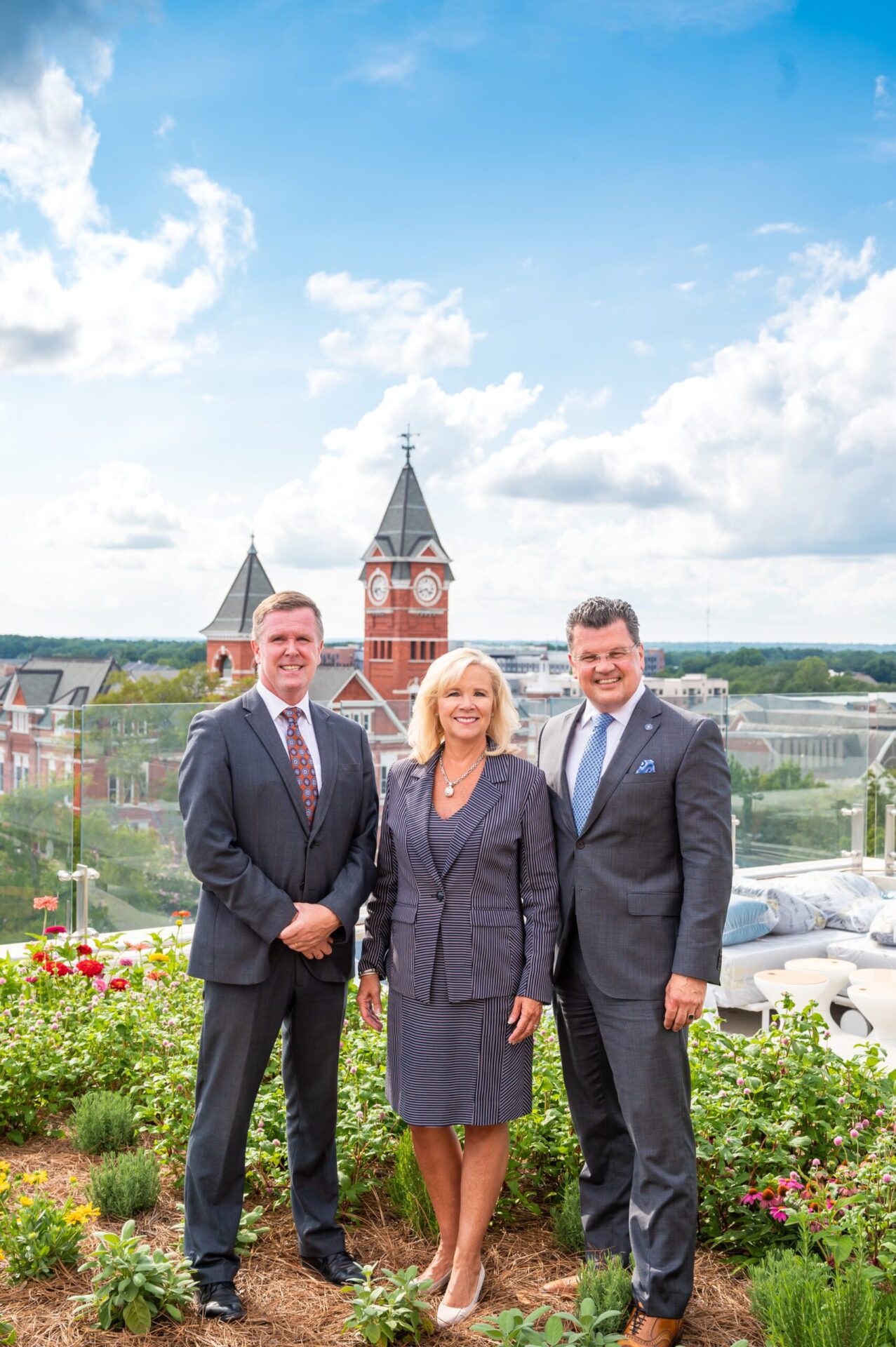
Beyond the roar of SEC football and basketball victories, there’s something cooking at Auburn University, this fall. At the epicenter of the town’s namesake university, the cutting-edge Tony and Libba Rane Culinary Science Center (RCSC) opens this month. It aims to upend everything you thought a culinary and hospitality program could be.
When the center debuts, the culmination of decades of research, development, global exploration, and input from industry veterans will activate all five senses with students and university visitors alike. Housed inside one building will be culinary classrooms and laboratories. Not to mention, there will be a student-run upscale restaurant, food hall, coffee roastery, boutique hotel, and even private residences. All of this have the intent to produce excellence in the hospitality field.
Expert Opinions
The development and execution is the result of a unique collaboration between the hospitality industry and higher education. Hans van der
Reijden, founder and CEO of Ithaka Hospitality Partners, LLC, a university and campus based boutique hotel and restaurant management company, brings a truly global view of hospitality. He has opened luxury properties everywhere from Austria to Singapore. On the university front, Dr. Martin O’Neill, department head of the Nutrition, Dietetics, and Hospitality Management program, steers the educational element of RCSC.
Made possible by a generous donation from Auburn grad Jimmy Rane. It was made in honor of his parents who were hospitality pioneers themselves. The RCSC stands as a beacon at the corner of South College Street and East Thach Avenue, directly across from the Auburn University president’s office. When more than 25,000 university students return to campus this fall, they’ll come face-to-face with the inner workings of the center. Literally, as floor-to-ceiling windows inside and out are meant to represent the transparent and integrative nature of what takes place inside. The building is the education locus for almost 300 students in hospitality concentrations. This includes culinary science, hotel and restaurant management, and event management. Where else can a biology major watch their classmate execute a perfect pâte à choux? Not to mention while they using their dining card to buy lunch in the food hall.
Why Now?
The endeavor has been a bold undertaking, especially in a post-pandemic world where the hospitality industry has been shaken to its core. Schools around the world and across the Southeast have been forced to reexamine student and industry expectations. Culinary programs in Charlotte, Charleston, and New Orleans managed to pivot while staying true to the career goals of their students. However, not without feeling pinched.
Jerry Lanuzza, associate dean of the College of Food Innovation & Technology at Johnson & Wales University, Charlotte, says, “We went through an entire curriculum rewrite [in the midst of Covid-19].” He notes that while enrollment did decline due to the pandemic, they were able to continue their face-to-face labs and classroom teaching even when things went virtual briefly.
At College of Charleston, Jeremy Clement, senior instructor and internship coordinator at the Department of Hospitality and Tourism Management in the School of Business, also saw enrollment numbers decline. While some current students switched majors entirely, the hospitality and tourism concentrations experienced notable enrollment dips. Clement says, “No doubt the optics on the pandemic were terrible for the hospitality industry [which] was so decimated and many students were likely scared away.”
Given this global industry backdrop, the ambition of the RCSC feels even more impressive, especially since this is not just any culinary or hospitality program. Other notable culinary institutions across the globe offer training in wine or hotel management or pastry arts. Conversely, this is the only program that offers a multitude of disciplines within one educational and state-of-the-art, hands-on facility. The goal was to eliminate the singular-focus approach, instead creating and fostering collaboration across the board. Van der Reijden says that as he and O’Neill traveled the globe to benchmark the best programs and institutes, “we found excellence everywhere we went, but very much siloed. The best brewing program is in Munich, the best culinary education in Singapore, the best teaching hotel in Dubai. We wanted to bring the whole thing together in one center.”
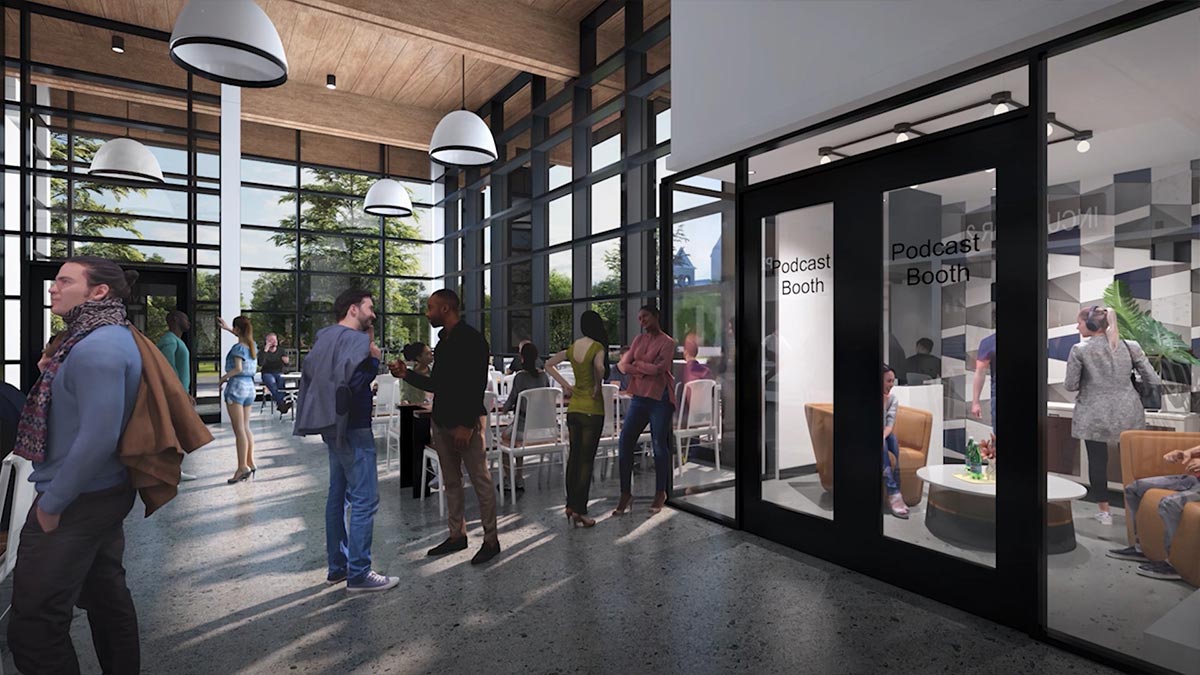
Student Benefits
This means that students will graduate with first-hand knowledge in everything. From mastering the mother sauces to crafting epic IPAs; from readying a second residence for a returning owner to providing proper poolside cabana service; and from food photography to podcasting. This translates into covetable employment upon graduation.
As chef Frank Stitt of Birmingham’s Highlands Bar & Grill says, “Its potential impact is enormous.” As the founder and chef of the 2018 James Beard Award winner for Outstanding Restaurant, Stitt appreciates them potential caliber of students who will graduate from the program. “[This] is going to be one of the most interesting and exciting culinary education centers in America, if not the world.”
What’s Inside the Sauce at Auburn University
The RCSC will feature numerous experiential classroom spaces where students can obtain hands-on learning and immerse themselves in different facets of the hospitality world. Here’s what they can expect.
The upscale teaching restaurant will serve an à la carte lunch and a tasting menu during dinner service. This is the only one of its kind in the world. It will also offer students the ability to hone skills in both front- and back-of-house roles.
It is set to be Alabama’s first ultra-luxury hotel and spa. The Laurel will provide a haven for Auburn University visitors and firsthand learning experiences for students interested in luxury hospitality careers.
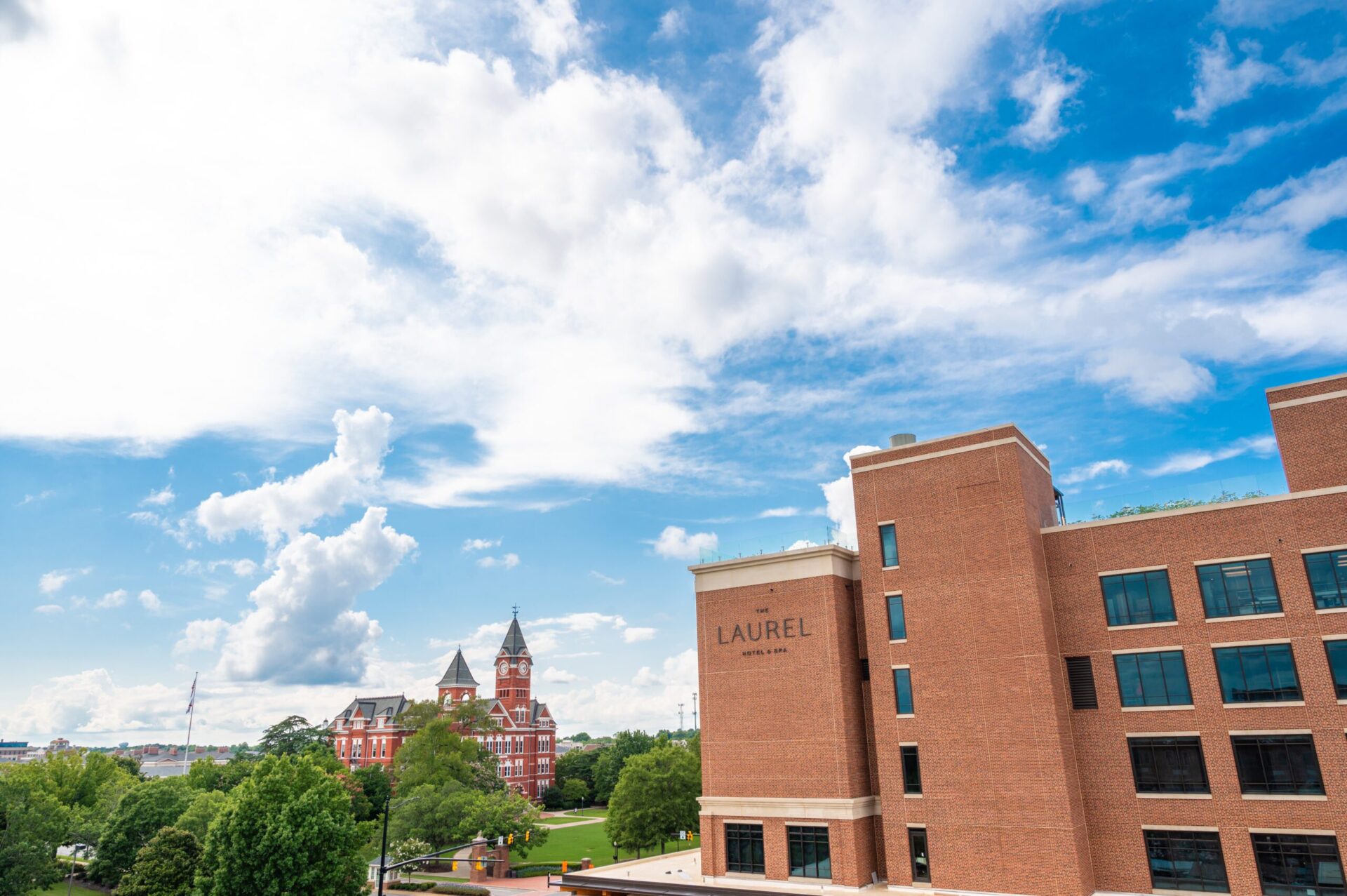
EDUCATIONAL LABS
Each lab in the center will be dedicated to a specialized area within the hospitality industry. This includes culinary, pastry, catering, winemaking and stewardship, distilling, brewing, coffee roasting, food styling, photography, and more.
This multiconcept food hall will include an incubator stall for student concepts and a podcast studio.
The building’s rooftop will feature an infinity pool and cabanas available exclusively for hotel guests and residents. Additionally, there will be a rooftop lounge, a large garden providing organic produce to be used at the 1856 restaurant and in the culinary laboratories. To top it all off, there is an event space with unparalleled views of Auburn University’s iconic Samford Hall.

A micro coffee roastery and cafe will allow students to immerse themselves in the entire process of coffee-making from bean to cup.
The Brewing Science Laboratory will feature a state-of-the-art teaching brewery, tasting room, and microbiology laboratory to allow students to learn the craft of brewing.
If all of this makes you long to go back to college (but maybe without the stress of midterms and living in a cinderblock dorm), you’re in luck. Future plans include offering weekend adults-only culinary retreats. High-profile visiting chefs will teach participants on Thursdays or Fridays and then be the spotlight guests for weekends. This includes rooftop receptions poolside, a blowout dinner in the on-site restaurant, and luxury accommodations at the center’s Laurel Hotel. Sign us up.
